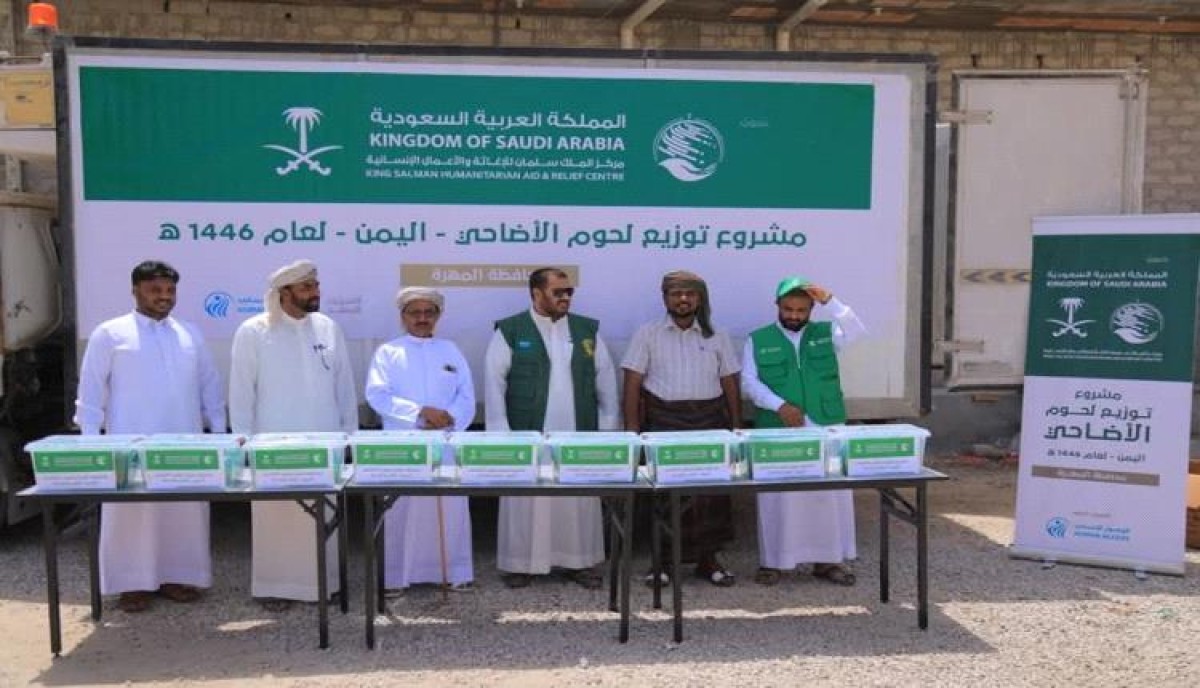Saudi support provided for improving the living conditions in the skilled


The King Salman Center for Relief and Humanitarian Action launched a project to distribute sacrificial meat in Al -Mahra Governorate, within its annual project for the year 1446 AH/2025AD, which is implemented by the Humanitarian Access Association, and the families target the most needy in a number of Yemeni governorates, including Al -Mahra.
Al -Mahra Governorate was devoted to the distribution of 500 sheep, which benefits 1,000 families and 7,000 individuals, out of the total project that includes the distribution of 4,180 sheep in the governorates: Marib, Hadramout, Al -Mahra, and Aden, and 8,360 families and 58,520 individuals benefit from it.
During the inauguration effectiveness, the technical agent of the governorate, Eng. Awad Ahmed Kaimzan, praised the prominent humanitarian role played by the Kingdom of Saudi Arabia through the King Salman Relief Center in supporting the Yemeni people, stressing that Al -Mahra Governorate is receiving special attention through qualitative humanitarian, relief and development projects.
For his part, the head of the Humanitarian Access Association, Abdullah Nuwaja Irfan, stressed the importance of the sacrificial meat distribution project in improving the living conditions of the targeted families, and helping them to share the community’s joy, praising the support of the King Salman’s continuous center for this vital project.
The inauguration ceremony was attended by the Coordinator of the Relief Affairs of the King Salman Center in the governorate of Salem Al -Saqqaf, the Deputy Director General of the Office of Social Affairs and Labor Salem Swailem, the director of the executive unit of the displaced, Mr. Abu Bakr Salem bin Brik, and the executive director of the association Mustafa Al -Qadri.
The implementation of the project comes within the efforts of the Kingdom of Saudi Arabia, represented by the King Salman Relief Center, to alleviate the suffering of the Yemeni people, and to improve their living conditions in light of the current humanitarian conditions.